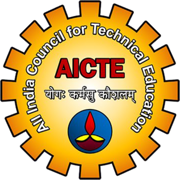About | All India Council Of Technology (AICTE) () , All INDIA Check here latest notification
The All India Council for Technical Education (AICTE): A Pillar of India's Technical Education System
Introduction
The All India Council for Technical Education (AICTE) is a national-level apex advisory body established to oversee and ensure the proper planning and coordinated development of the technical education system in India. Founded in November 1945, AICTE has played a pivotal role in shaping and regulating technical education in the country. Its mission is to promote quality in technical education, provide consistent guidance, and support institutions to meet the demands of industry and society.
Historical Background
AICTE was initially set up as an advisory body under the Department of Education, Ministry of Human Resource Development. It was later given statutory status by an Act of Parliament in 1987. This transformation empowered AICTE to function as a formal body responsible for planning, formulating, and maintaining norms and standards in technical education.
Objectives and Functions
The primary objectives of AICTE include:
1. Promotion of Quality: AICTE is committed to promoting high standards in technical education. It provides accreditation to institutions and programs, ensuring they meet the required educational standards.
2. Regulation and Coordination: The council regulates and coordinates the development of technical education across India. This involves overseeing the establishment of new institutions, ensuring adequate infrastructure, and maintaining a balanced geographical distribution of technical education facilities.
3. Funding and Grants: AICTE allocates funds and grants to institutions for the development of technical education. This includes providing financial assistance for research projects, faculty development programs, and infrastructure improvements.
4. Policy Formulation: The council is involved in formulating policies and plans related to technical education. This includes curriculum development, the introduction of new courses, and the implementation of innovative teaching methods.
5. Collaboration and Networking: AICTE promotes collaboration between institutions, industries, and other stakeholders. It facilitates the exchange of ideas and best practices, helping to bridge the gap between academia and industry.
Key Initiatives and Programs
AICTE has launched several initiatives and programs aimed at enhancing the quality and reach of technical education in India:
1. National Institutional Ranking Framework (NIRF): AICTE collaborates with the Ministry of Education to rank institutions based on various parameters such as teaching, learning, research, and outreach. This helps students and parents make informed decisions while choosing institutions.
2. SWAYAM and SWAYAM Prabha: These are digital platforms that offer online courses and educational content. AICTE has played a significant role in making quality education accessible to students across the country through these initiatives.
3. Skill Development Programs: AICTE conducts various skill development programs to enhance the employability of students. These programs focus on developing technical skills, soft skills, and entrepreneurship capabilities.
4. Smart India Hackathon: This is a nationwide initiative to provide students with a platform to solve real-world problems using technology. AICTE organizes this event to encourage innovation and problem-solving skills among students.
5. AICTE-Approved Institutions: The council maintains a list of approved institutions and programs, ensuring they adhere to the set standards. This helps in maintaining the quality of education and protecting students from substandard institutions.
Challenges and the Way Forward
Despite its significant contributions, AICTE faces several challenges. These include:
1. Quality Assurance: Ensuring consistent quality across all technical institutions remains a challenge. AICTE needs to continuously update its accreditation process and evaluation criteria to keep up with the changing educational landscape.
2. Industry-Academia Gap: Bridging the gap between academic curricula and industry requirements is crucial. AICTE must foster stronger partnerships between educational institutions and industries to ensure students are industry-ready.
3. Technological Advancements: With the rapid pace of technological advancements, AICTE must ensure that institutions are equipped to teach and train students in the latest technologies.
4. Inclusivity and Accessibility: AICTE must work towards making technical education more inclusive and accessible to students from diverse backgrounds, including those from rural and economically disadvantaged sections.
Conclusion
The All India Council for Technical Education (AICTE) has been a cornerstone in the development and regulation of technical education in India. Through its various initiatives and programs, it has significantly contributed to enhancing the quality and reach of technical education. As India continues to evolve as a global technology hub, AICTE's role in shaping the future of technical education will be more critical than ever. By addressing the challenges and leveraging opportunities, AICTE can ensure that India's technical education system remains robust, inclusive, and globally competitive.





